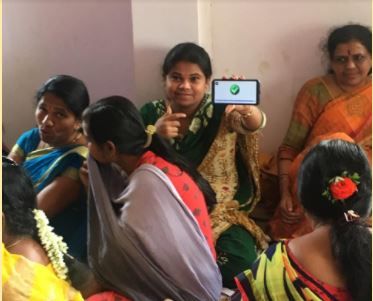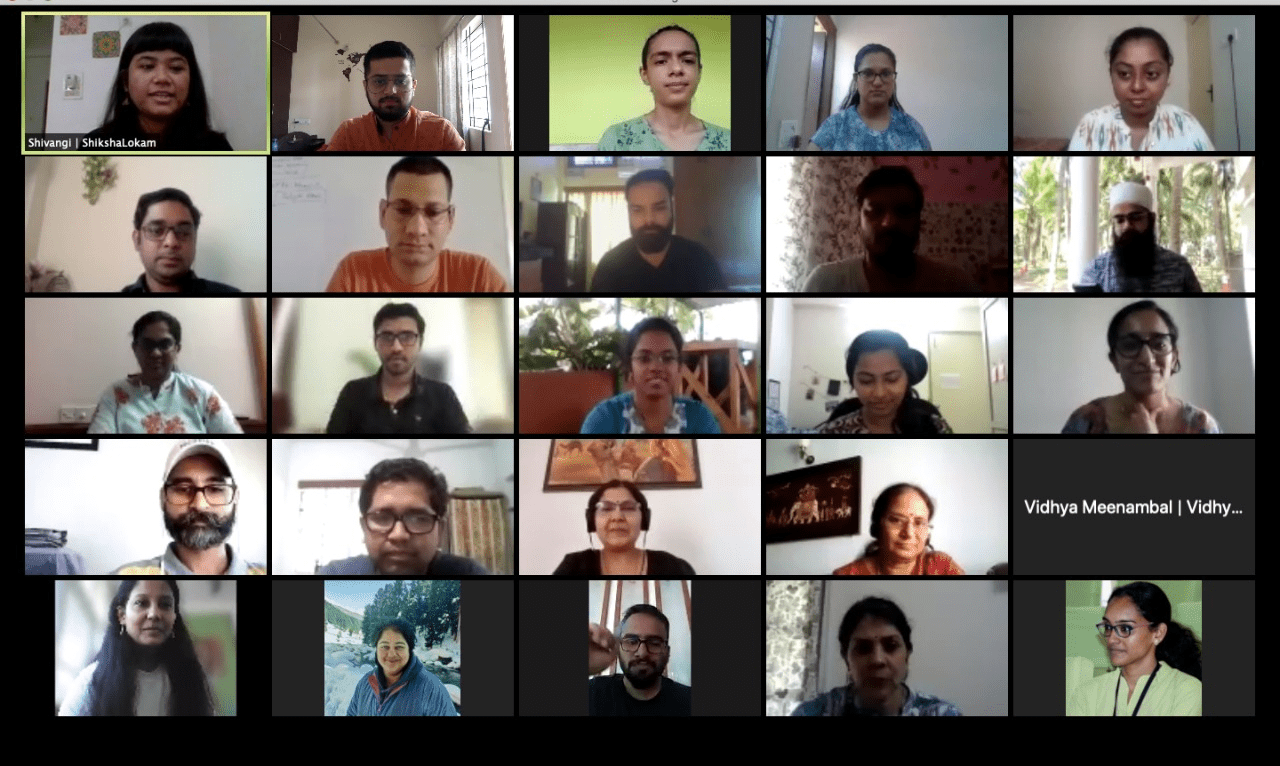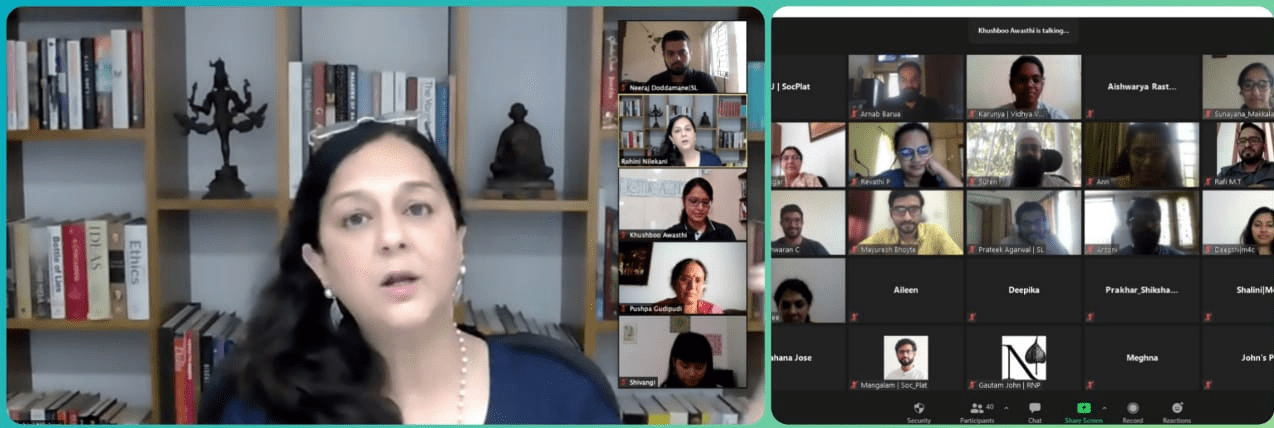“I am so proud to be a part of a program that is made, composed, designed by me to engage in continuous self learning” – Gautam Gaur, DM, English and Social Science, Fazilka district, Punjab
Mr. Gaur, who is the District Mentor (DM) , English and Social Science of Fazilka district in Punjab, came together, along with other District Mentors, to design courses for the Teacher Orientation Program for Punjab (TOPP). The courses will be launched soon on DIKSHA platform by the Education Department supported by the Punjab Education Collective (PEC). To understand their needs and challenges, DMs regularly engage with teachers on weekly video conferences and help them identify and implement solutions in the classrooms. The support from the DMs and the convenience provided by the Platform has given the teachers the space to learn and improve their skills according to their convenience, thereby empowering themselves. This initiative gave teachers and the DMs’ the opportunity to engage with continuous self learning and the ability to exercise their agency.
Agency, which is the ability of an individual to act independently and to make free choices is critical and pivotal for any system. Agency can be constrained by control (or maneuvering power structures) and restored by unlocking ability. Everybody has a choice that they can make decisions in their life, but their ability to enact this choice is controlled by various internal and external factors. These factors can often cause a breakdown due to lack of access (to information, resources), institutional barriers (due to bureaucratic structure, employment constraints), loss of rights, and loss of trust.
In the space of education and education leadership, many times our leaders come across situations where they are unable to exercise their agency, due to being burdened with a lot of administrative work leading to a shift in focus from the main role of pedagogical guidance, mentoring and capacity building. Such institutional barriers often cause the system to slowly disintegrate. Hence, restoring agency becomes one of the ways to ensure people find meaning in their work and are continuously innovating and keeping the system alive. This can be done through establishing pathways of access to information, building accountability in processes, design and index for rights/legal framework, and have processes that enhance trust.
“Societal challenges are complex and dynamic – like shapeshifters. No matter how elegant a solution is, it will become irrelevant with time. The only way to solve these large scale challenges in a sustainable way is to restore and nurture agency among the people. When actors have improved access (I have) to resources, their belief in their own ability (I can) to drive improvements strengthens and they start asking for more (I wish). This trinity of “I have – I can – I wish” is the manifestation of agency; and triggers a virtuous cycle of continuous improvements – even in face of newer challenges.”
In our journey towards enabling leadership, we discovered that a leader needs to be aware of the roles and responsibilities and should have the ability to see, and assess, ability to plan and act on their improvement journey and have ability to learn, in order to exercise their choices actively. Being a societal platform for education leadership, we at ShikshaLokam continue to apply societal platform thinking and it’s principles in our work – one of them being Restoring Agency. The platform provides the leaders access to tools and resources that can help them observe, assess, plan and improve in the process of restoring agency. The resources are sourced from the ecosystem via organisations and government institutions that specialise in their domains and are willing to share their intellectual property with the entire community.
Through ShikshaLokam’s Unnati capability, over 400 schools across India got an opportunity to create and share their micro innovations in Micro Innovations awards conducted by ShikshaLokam and National Independent Schools Alliance (NISA). The initiative was designed to gather recognition from the system towards initiatives taken at individual level by the school leaders.

They did get immense support and appreciation from the Education department that they built something of their choice. Initiatives such as these uplift the morale of the participants and remind them of their ability to act and drive change at their own level. We believe this is the true meaning of restoring agency, starting from the individual level.
Additionally, in Punjab, when the parents were unsure of how will the education of their children continue under the lockdown and school shutdowns, the State took the effort to orchestrate virtual parent teachers’ meetings to build trust among the education system and the parent community. The initiative was named Maape Adhyapak Milni Hafta: A state-wide engagement with parents and community and the weeklong engagement gained a huge response from more than 20 lakh parents.

Through this initiative, the parents were reached out with the objective of informing, appreciating and listening to them and filling in all the information gaps that existed, with ideas about activities to do with children, coordinated content and homework for students, other daily challenges, etc. This was another important effort in strengthening the agency of parents to engage with their children at home and build trust between the system and the community.
Restoring agency for stakeholders can take many different forms. ShikshaLokam has been constantly moving forward towards restoring agency by providing an open source platform for leaders to empower themselves and be aware of how to lead their teams and make it better for them to exercise agency. We are continuously striving to co-create various ways in which the agency of our stakeholders is restored sustainably.



